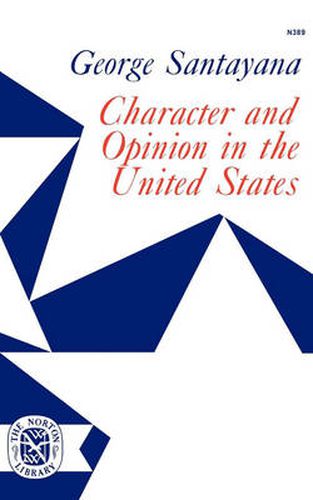Readings Newsletter
Become a Readings Member to make your shopping experience even easier.
Sign in or sign up for free!
You’re not far away from qualifying for FREE standard shipping within Australia
You’ve qualified for FREE standard shipping within Australia
The cart is loading…






This title is printed to order. This book may have been self-published. If so, we cannot guarantee the quality of the content. In the main most books will have gone through the editing process however some may not. We therefore suggest that you be aware of this before ordering this book. If in doubt check either the author or publisher’s details as we are unable to accept any returns unless they are faulty. Please contact us if you have any questions.
This historic book may have numerous typos and missing text. Purchasers can download a free scanned copy of the original book (without typos) from the publisher. Not indexed. Not illustrated. 1921 edition. Excerpt: …toils of your own unaccountable character, which made your destiny. Royce never recoiled from paradox or from bitter fact; and he used to say that a mouse, when tormented and torn to pieces by a cat, was realising his own deepest will, since he had sub-consciously chosen to be a mouse in a world that should have cats in it. The mouse really, in his deeper self, wanted to be terrified, clawed, and devoured. Royce was superficially a rationalist, with no tenderness for superstition in detail and not much sympathy with civilised religions; but we see here that in his heart he was loyal to the aboriginal principle of all superstition: reverence for what hurts. He said to himself that in so far as God was the devil–as daily experience and Hegelian logic proved was largely the case–devil-worship was true religion. A protest, however, arose in his own mind against this doctrine. Strong early bonds attached him to moralism–to the opinion of the Stoics and of Kant that virtue is the only good. Yet if virtue were conceived after their manner, as a heroic and sublimated attitude of the will, of which the world hardly afforded any example, how should the whole whirligig of life be good also? How should moralism, that frowns on this wicked world, be reconciled with pantheism and optimism, that hug it to their bosom? By the ingenious if rather melodramatic notion that we should hug it with a bear’s hug, that virtue consisted (as Royce often put it) in holding evil by the throat; so that the world was good because it was a good world to strangle, and if we only managed to do so, the more it deserved strangling the better world it was. But this Herculean feat must not be considered as something to accomplish once for all; the labours of Hercules must be not…
$9.00 standard shipping within Australia
FREE standard shipping within Australia for orders over $100.00
Express & International shipping calculated at checkout
Stock availability can be subject to change without notice. We recommend calling the shop or contacting our online team to check availability of low stock items. Please see our Shopping Online page for more details.
This title is printed to order. This book may have been self-published. If so, we cannot guarantee the quality of the content. In the main most books will have gone through the editing process however some may not. We therefore suggest that you be aware of this before ordering this book. If in doubt check either the author or publisher’s details as we are unable to accept any returns unless they are faulty. Please contact us if you have any questions.
This historic book may have numerous typos and missing text. Purchasers can download a free scanned copy of the original book (without typos) from the publisher. Not indexed. Not illustrated. 1921 edition. Excerpt: …toils of your own unaccountable character, which made your destiny. Royce never recoiled from paradox or from bitter fact; and he used to say that a mouse, when tormented and torn to pieces by a cat, was realising his own deepest will, since he had sub-consciously chosen to be a mouse in a world that should have cats in it. The mouse really, in his deeper self, wanted to be terrified, clawed, and devoured. Royce was superficially a rationalist, with no tenderness for superstition in detail and not much sympathy with civilised religions; but we see here that in his heart he was loyal to the aboriginal principle of all superstition: reverence for what hurts. He said to himself that in so far as God was the devil–as daily experience and Hegelian logic proved was largely the case–devil-worship was true religion. A protest, however, arose in his own mind against this doctrine. Strong early bonds attached him to moralism–to the opinion of the Stoics and of Kant that virtue is the only good. Yet if virtue were conceived after their manner, as a heroic and sublimated attitude of the will, of which the world hardly afforded any example, how should the whole whirligig of life be good also? How should moralism, that frowns on this wicked world, be reconciled with pantheism and optimism, that hug it to their bosom? By the ingenious if rather melodramatic notion that we should hug it with a bear’s hug, that virtue consisted (as Royce often put it) in holding evil by the throat; so that the world was good because it was a good world to strangle, and if we only managed to do so, the more it deserved strangling the better world it was. But this Herculean feat must not be considered as something to accomplish once for all; the labours of Hercules must be not…